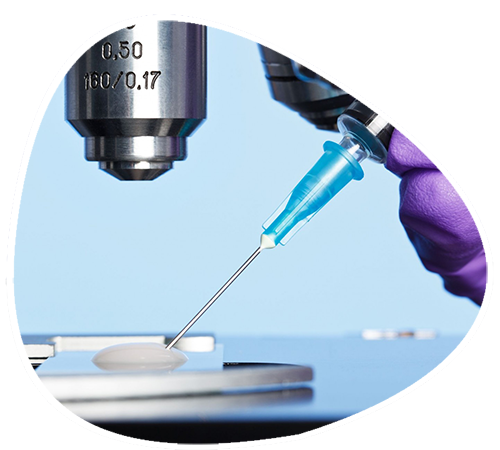What is Intracytoplasmic Sperm Injection (ICSI)?
Intracytoplasmic Sperm Injection is a specialized form of In Vitro fertilization (IVF) which involves the direct injection of sperm into the eggs. It is very similar to the conventional IVF. In IVF eggs and sperms are left in a petri dish to fertilize on their own.
ICSI is used in cases of severe male infertility. Approximately half of the couples having problem conceiving has sperm related problems. ICSI is the most common and successful treatment in such cases.
ICSI is a laboratory procedure where a single sperm is picked up with a fine glass needle and injected directly into the egg, in order to fertilize it. Then this fertilized egg known as embryo is transferred into the woman's womb.


